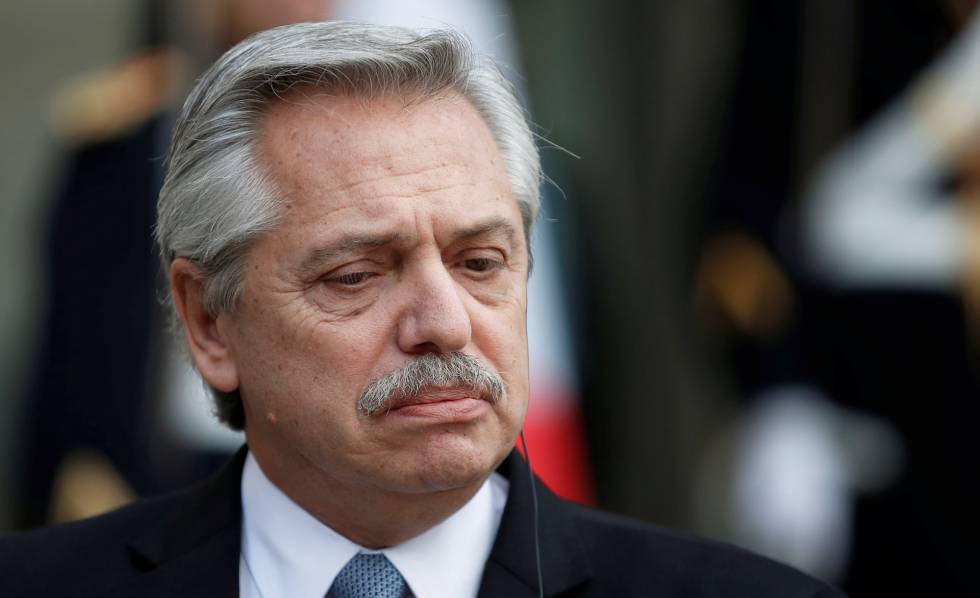RIO DE JANEIRO, BRAZIL – Argentina’s Executive Power has been experiencing a sensitive political moment since the beginning of the month, after the untimely resignation of the Minister of Economy, Manuel Guzmán, and while the country is trying to overcome inflation that has already exceeded 62% in the last year.
However, analysts consider that the government of President Alberto Fernandez is not experiencing “a climate of destabilization” that could threaten the completion of his term of office, scheduled for the end of next year.
The Argentine government is facing the complications of its indebtedness to the International Monetary Fund (IMF) of almost US$45 billion. The agreements with that organization demand the progressive reduction of the fiscal deficit. Still, they have aroused criticism from the Vice-President herself, former President Cristina Fernandez de Kirchner, who calls for the protection of impoverished sectors.

Fernandez and the leftist ruling coalition, the Frente de Todos, are going through “a complex situation” due to the economic challenges and the public and closed-door questioning of their allies, explains Bruno Tondini, a professor specializing in finance and law at the Universidad Nacional de la Plata.
The expert specifies that the ruling Peronism is not a “monolithic” figure, and its cracks have worsened since the negative results of last year’s elections when the ruling party lost its majority in the Chamber of Deputies.
However, that context does not represent a risk for Fernandez’s continuity as president, Tondini remarks. “There is not a climate of destabilization. There is, however, a questioning of the administration inside the country and not to mention outside, with the complex situation of inflation, strict exchange control, difficulties to acquire certain goods,” he comments.
Tondini stresses that the political and economic class and the citizens of Argentina are convinced that governments must finish their terms of office. “There is a political step forward in society” beyond the street protests that opponents and even pro-government sectors are staging against Fernandez.
CRISIS OF DOUBLE FORM
The current crisis in Argentina is “two-fold”; that is, political and economic, political scientist and research professor at the Catholic University of Córdoba, César Murua, assures.
“The economic crisis is fiscal; it is a deficit that has been overdue for almost ten years, accumulated consecutively,” and the agreement with the IMF seeks to reduce, he explains. Added to this is the “weak leadership” of Fernandez, he said.
“Fernandez is not a public figure that can create a transversal leadership in society. He cannot even do so in the government coalition itself, which has been broken for a long time,” even with Vice President Kirchner, Murua said.
Local media pointed out that Fernandez had almost a month without talking with Kirchner until the resignation of the Minister of Economy. Murua points out that the Argentine president has also failed to “align his own cabinet” and even dares to predict new changes in his slate of ministers.
Murua agrees with Tondini that Fernández is in no danger of interrupting her mandate due to her financial and political difficulties. The current crisis is not comparable to 2001 when President Fernando De La Rúa resigned amid social protests. That one, he says, was a “total” crisis.
“The particularity of the current crisis is that it is economical and political, but it is taking place in a context of growth, and this may be one of the factors that may prevent” a possible collapse of the Fernandez government, says the Argentine analyst.
This week, the new Minister of Economy, Susana Batakis, promised to respect the agreements negotiated by her predecessor with the IMF and hoped there would be “order and balance” in the Argentine government’s accounts. Her promises seemed to give continuity to the fiscal program contemplated by former Minister Guzmán.
“We are not going to spend more than we have,” Batakis remarked on Monday. Murua, for his part, considers that the change of names in the financial portfolio does not imply “a clear resolution of the course” to be followed in economic policies.
“Basically, what Argentina needs is an economic policy with much more critical measures in terms of their potential effects, more comprehensive, and the government needs greater political strength for that policy, which neither Minister Batakis nor President Fernández has today,” he warns.
He believes the Argentinean president must make a “bolder” move within his alliances to pave the country’s political and economic floor.
With information from Voz de América

